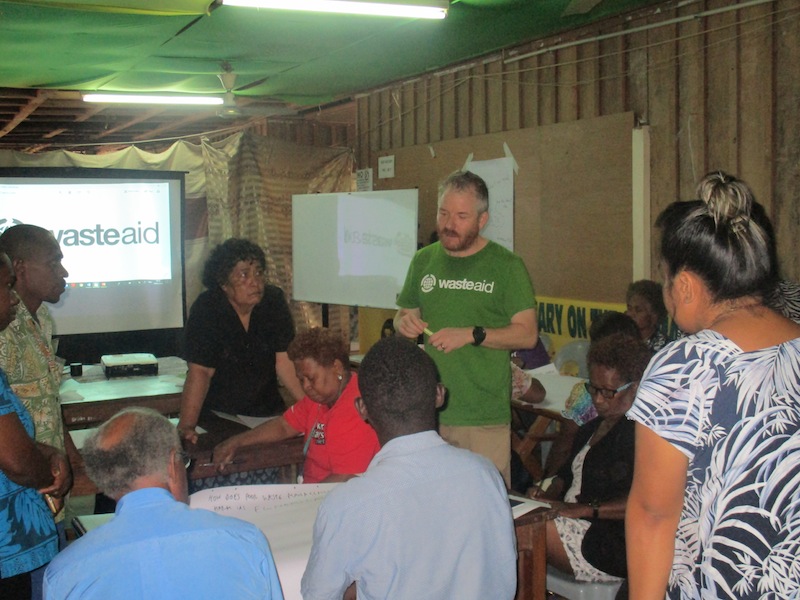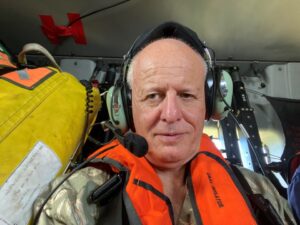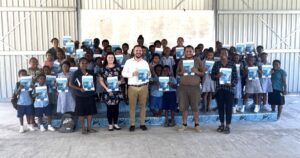BY AGNES MENANOPO
WASTE Management Charity Group, WasteAid UK through the Commonwealth Litter Program (CLiP) has recently facilitated a Policy and Action Workshop on Marine Litter on 14 February at the Solomon Islands Development Trust Building in Honiara.
The one-day workshop is structured across five pillars of proposed litter interventions: land-based sources, sea-based sources; removal; science and research; and education and outreach.
Workshop Facilitator, and WasteAid Chief Executive Officer, Mike Webster said the workshop is to building the skills of local people to deliver practical solutions to the waste management crises in their own communities and raising awareness of the benefits of proper waste management and campaigning for greater change.
“The workshop is about wastes produced in livelihoods; what can be done with wastes, separate wastes and looking for other uses of wastes, i.e. turn them into useful resources.
“Participants are to learn about the problems caused by wastes after produced and the opportunities to improve organic wastes and plastics. With this workshop, we are going to come up with a plan to deal with solid wastes in Honiara and help community organizations active in waste managements.
“When there is no municipal waste collection people have no option but to dump or burn their wastes close to where they live. These practices are harmful to public health, local economies, and the environment.
“These three areas are the most affected by waste management in the livelihood. Everyone know the environment is the most affected area when it comes to waste issues, but it also affects people’s health and reduce economic developments,” Webster said.
WasteAid, a charity who is working to make an impact on the global waste emergency by; partnering with local organizations to improve the health, environment, and livelihoods of people without waste services.
Meanwhile, the Commonwealth Litter Program (CLiP) is to help reduce plastic entering the marine environment.
Mike Webster said waste management is everybody’s responsibility. Community sectors, private and government sectors can work together to deal with this problem by identifying opportunities dealing with all the different kinds of wastes.
“Dealing with waste management has many challenges but if we can all work together, we can easily find solutions to solve this problem.
Marine litter is found in all the oceans of the world. It is found not only in densely populated parts of the Commonwealth but also in remote areas, far from obvious sources and human contact.
Up to 90% of marine litter is made up of plastics, originating from both land and sea-based sources.




